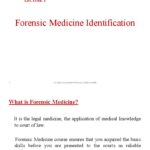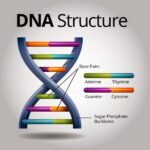Ever wonder if your body is screaming for kale while you’re blissfully unaware, reaching for a donut? The allure of personalized nutrition, guided by the very blueprint of your being – your DNA – is undeniably captivating. But, does this burgeoning field of nutrigenomics truly offer actionable insights, or is it simply a sophisticated form of dietary divination?
Let’s delve into the multifaceted world of DNA testing for nutritional purposes, dissecting its potential benefits and acknowledging its inherent limitations. This exploration will illuminate the degree to which such testing can genuinely inform dietary choices and contribute to improved health outcomes.
Unveiling Genetic Predispositions: A Glimpse into Your Nutritional Landscape
DNA tests designed for nutritional analysis scrutinize specific gene variants, known as single nucleotide polymorphisms (SNPs). These SNPs are associated with various metabolic processes, nutrient absorption, and individual responses to different foods. The premise is straightforward: by identifying your unique genetic profile, one can theoretically tailor dietary recommendations to optimize nutrient utilization and mitigate potential risks.
One primary area where genetic testing can offer insights is lactose intolerance. The LCT gene governs the production of lactase, the enzyme responsible for breaking down lactose. Certain variations in this gene can predict an individual’s likelihood of developing lactose intolerance, allowing for proactive dietary adjustments to avoid gastrointestinal distress. This knowledge empowers individuals to make informed decisions regarding dairy consumption, potentially alleviating uncomfortable symptoms and improving overall well-being.
Another pertinent area is vitamin metabolism. Consider the MTHFR gene, crucial for folate metabolism. Certain variants can impair the enzyme’s function, potentially leading to elevated homocysteine levels and increased risk of cardiovascular disease. Individuals identified with such variants might benefit from increased folate intake, achieved through supplementation or dietary modification. This preemptive approach can potentially mitigate future health complications.
Genetic testing can also shed light on an individual’s predisposition to certain dietary sensitivities. For instance, genes involved in gluten metabolism can provide insights into an individual’s tolerance to gluten. While not a definitive diagnosis of celiac disease, it can highlight a potential sensitivity, prompting further investigation and potential dietary adjustments. These types of analyses can prove to be very useful to those wanting to understand their bodies needs and limitations.
The Caveats and Considerations: Navigating the Complexities of Nutrigenomics
Despite the enticing possibilities, it’s crucial to approach DNA-based nutritional recommendations with a degree of circumspection. The field of nutrigenomics is still in its nascent stages, and several limitations warrant consideration.
Firstly, gene-environment interactions are complex and multifaceted. While a genetic predisposition might increase the likelihood of a particular outcome, it doesn’t guarantee it. Lifestyle factors, such as physical activity, stress levels, and overall dietary patterns, play a significant role in shaping health outcomes. A genetic test is merely one piece of the puzzle, not the definitive solution.
Furthermore, the scientific evidence supporting the efficacy of many nutrigenomic recommendations remains limited. While some gene-nutrient interactions are well-established, others are based on preliminary research and require further validation. Relying solely on genetic testing without considering other factors can lead to misinterpretations and potentially ineffective dietary interventions. Also, many tests include markers that have little to no scientific evidence.
The interpretation of genetic test results can also be challenging. Many tests analyze a vast number of SNPs, generating complex reports that can be difficult for individuals to understand without the guidance of a qualified healthcare professional. Misinterpreting the results or implementing inappropriate dietary changes based on incomplete information can be detrimental.
Ethical considerations also warrant attention. The potential for misusing genetic information, such as discrimination by insurance companies or employers, raises concerns about privacy and confidentiality. Safeguarding genetic data and ensuring responsible application of nutrigenomic information are paramount.
A Balanced Perspective: Integrating Genetics into a Holistic Approach
DNA testing for nutritional purposes should be viewed as a supplementary tool, rather than a replacement for conventional dietary advice. A holistic approach that considers genetic predispositions alongside lifestyle factors, medical history, and individual preferences is essential for optimizing health outcomes.
Consulting with a registered dietitian or other qualified healthcare professional is crucial for interpreting genetic test results and developing personalized dietary recommendations. These experts can help translate complex genetic information into actionable strategies, ensuring that dietary changes are safe, effective, and aligned with individual needs and goals.
Focusing on a foundation of healthy eating habits remains paramount. Emphasizing whole, unprocessed foods, prioritizing fruits and vegetables, and limiting added sugars and unhealthy fats are universally beneficial, regardless of genetic predispositions. Genetic testing can then be used to fine-tune dietary recommendations and address specific nutrient deficiencies or sensitivities.
In conclusion, DNA testing for nutritional purposes holds promise for personalizing dietary recommendations, but it’s not a panacea. While genetic information can provide valuable insights into individual metabolic processes and nutrient needs, it’s crucial to approach it with a critical eye, acknowledging its limitations and integrating it into a comprehensive and holistic approach to health and wellness. Only with judicious application and expert guidance can nutrigenomics truly contribute to improved health outcomes.










Leave a Comment